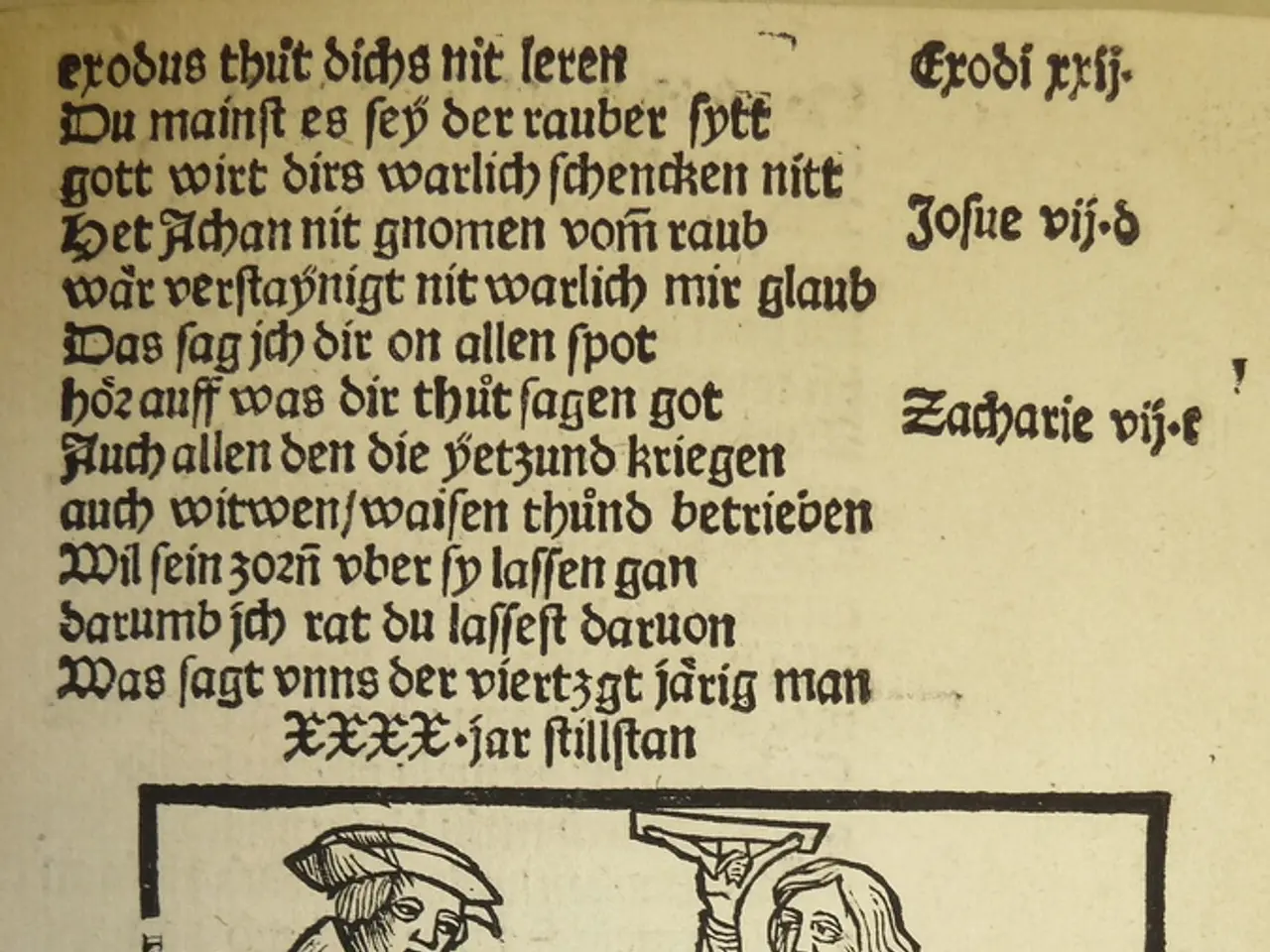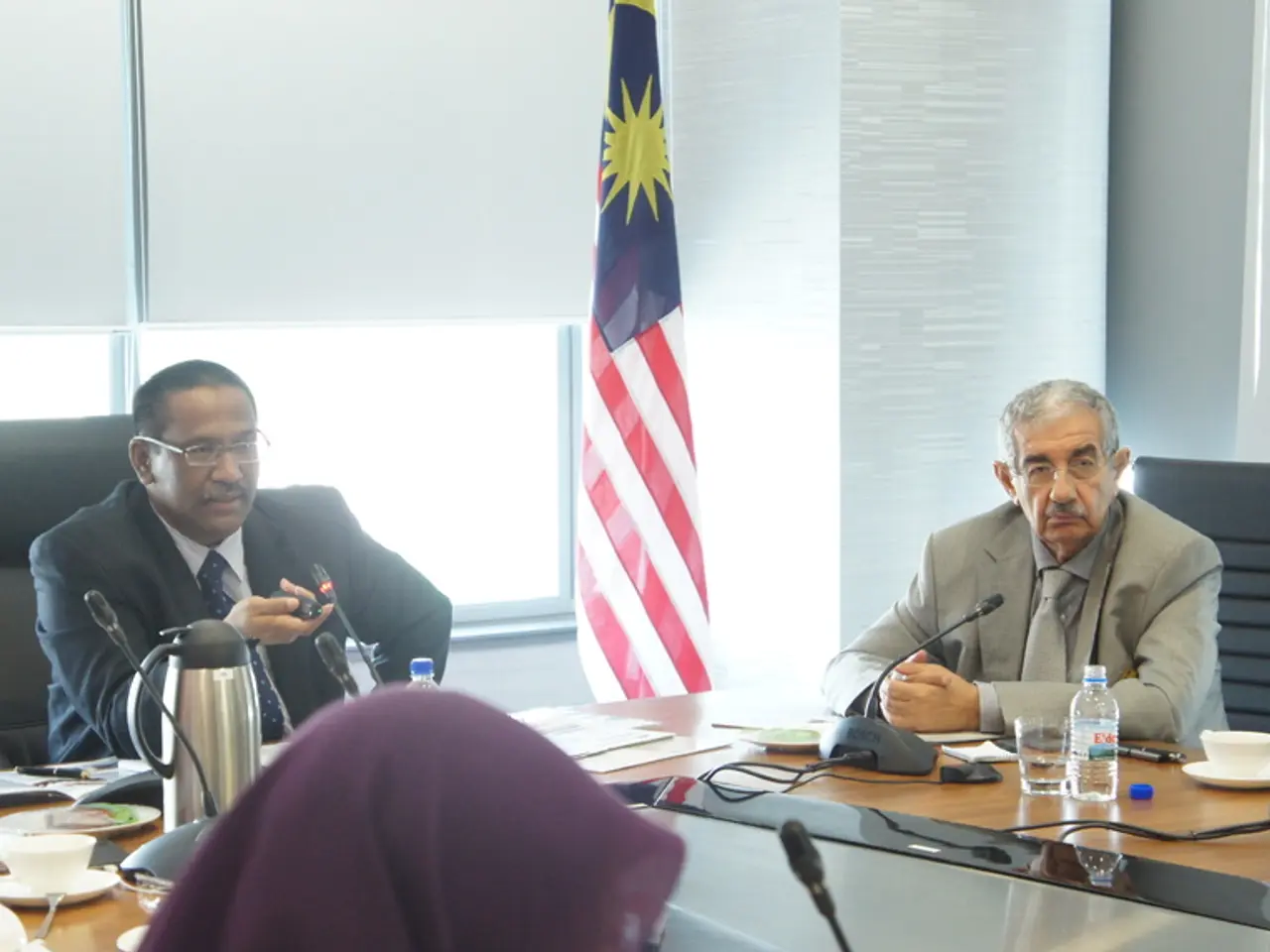Revised Code of Conduct for the Alternative for Germany Party
In the German Bundestag, the Alternative for Germany (AfD) faction has adopted a self-imposed code of conduct, emphasising a confrontational and opposition-driven approach. This stance has been reflected in their frequent clashes and rejection of mainstream parliamentary consensus, leading to increased scrutiny by state institutions and a polarised political environment.
The code of conduct has significantly impacted the AfD's role within federal politics. Their behaviour has contributed to a contentious atmosphere in the Bundestag, with the party often isolated from other parliamentary groups. This isolation has led to increased monitoring by German authorities and calls for banning AfD members from certain public-sector professions due to extremism concerns.
The AfD's self-imposed code of conduct is reflected in their consistent opposition to major parliamentary decisions. For instance, they refused to support constitutional protections for the Federal Constitutional Court, contrasting with all other major parties. The party's rhetoric and actions have also led to the Federal Office for the Protection of the Constitution classifying the AfD as a "confirmed right-wing extremist endeavour," noting racist and anti-Muslim organisational tendencies.
Despite calls for moderation, the AfD has maintained its hard-line stance on various issues. The party's seven-point manifesto reaffirms key positions, including a desire to stop the energy transition and extend the operating lives of coal-fired power plants. The manifesto also advocates for a hard-line immigration policy, deportations to Syria and Afghanistan, tax cuts, and the repair and restart of the Nord Stream gas pipelines from Russia.
Notably, the manifesto does not mention "Leitkultur" or "Remigration," which have been contentious issues in the past. However, the AfD's stance on immigration policy, including deportations, remains unspecified in the current manifesto.
The AfD's leadership has been vocal in their criticisms of the federal government and other parties. Alice Weidel, co-leader of the AfD, criticised the federal government for essentially continuing the policy of the rejected traffic light coalition. Weidel also accused Merz of "campaigning on completely different topics," which she described as "nothing but election fraud."
Tino Chrupalla, co-party and faction leader of the AfD, has called for more moderate tones in Bundestag speeches but has maintained the party's stance on tax cuts and the repair and restart of the Nord Stream gas pipelines from Russia. Chrupalla has also demanded an immediate reduction of the electricity tax for businesses and private individuals.
In response to criticism, the AfD has agreed to adopt a code of conduct and an agreement on behaviour in the Bundestag plenary, emphasising a united and composed appearance for political effectiveness and credibility. However, the party continues to see Germany as being in a "dire situation" due to "continued wrong decisions by the old parties."
As the AfD continues to implement its self-imposed code of conduct and seven-point manifesto, the party's role and impact within the German Bundestag remains a topic of ongoing debate and scrutiny.
The self-imposed code of conduct by the AfD, characterized by confrontational politics, has put them under increased scrutiny by state institutions, leading to debates about their eligibility in certain public-sector professions due to extremism concerns.
The AfD's actions and rhetoric, including their opposition to major parliamentary decisions and classification as a "confirmed right-wing extremist endeavor," have moved the discussion of their role within German politics from general news to the realm of constitutional protections and national security.






